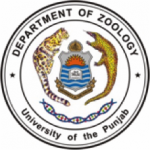Nutritional supplements play a crucial role in enhancing the growth and development of silkworms (Bombyx mori L.). This study evaluated the effects of probiotic-fortified mulberry leaves on biological and economic parameters as well as the digestive enzyme activity in silkworms. Fresh mulberry leaves coated with Saccharomyces cerevisiae and Lactobacillus rhamnosus at concentrations of (0.5, 1, and 2%) were fed to 5th instar silkworm larvae. Larval weight was measured for 7 days. A portion of the larvae were dissected, and their silk glands and guts were separated. The gut homogenate supernatant was used for enzyme activity analysis. The remaining larvae were allowed to complete the cocoon formation. The obtained cocoons were then used to estimate the effects of yeast treatments on economic and biological parameters. The results showed that the average weight of silkworm larvae on the 7th day was significantly higher (P<0.05) in larvae fed with 0.5% L. rhamnosus + S. cerevisiae compared to the control group. This group also exhibited the highest cocoon weight, length, width, shell ratio, and fibroin content. Moreover, the enzymatic activity was significantly higher in larvae fed with 0.5% L. rhamnosus + S. cerevisiae. It was concluded that the 0.5% L. rhamnosus + S. cerevisiae supplement promotes the enzymatic activity of silkworms, leading to positive effects on their economic and biological parameters.
Novelty Statement | Pakistan, an agrarian economy, has a significant potential in sericulture. This study aims to enhance the economic viability of sericulture by supplementing silkworms’ diet with probiotics-enriched mulberry leaves. The resulting economic benefits associated with improved silkworm growth and silk quality could encourage wider adoption of sericulture, contributing to rural development and sustainable agriculture in the country.








